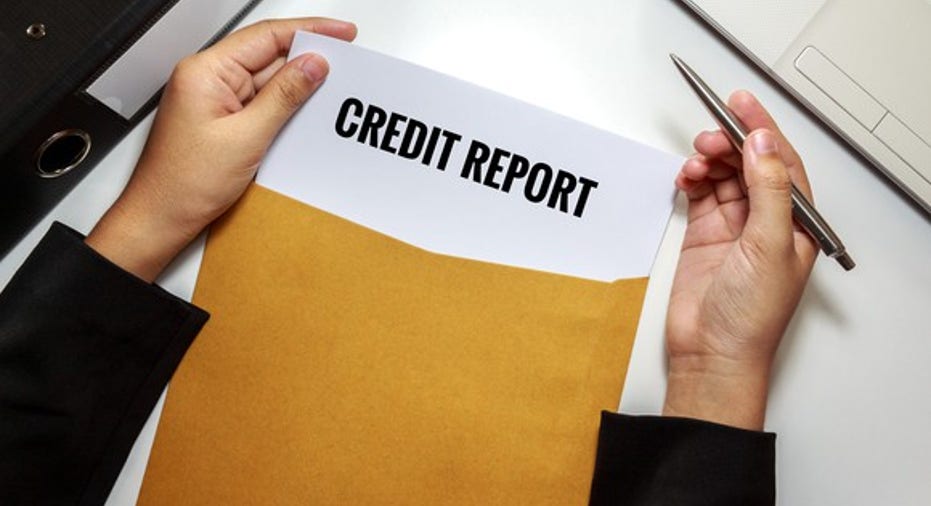3 of the Worst Credit Score Myths

Your credit score can impact your ability to get approved for a mortgage, auto loan, or credit card, and the better your score, the more favorable a rate you're likely to snag. Unfortunately, a large number of consumers are ill-informed when it comes to credit scores, and many wind up making critical errors as a result. Here are a few credit score myths that can really hurt you if you're not careful.
1. The older you are, the more your credit score will go up
There are several factors that come together to determine your credit score, such as avoiding late payments and not using too much of your available credit at any given point in time. Your payment history is another factor that can influence your credit score for better or worse, which is why younger borrowers often have trouble getting credit. It stands to reason that a 22-year-old who's been paying bills for six months won't have as established a credit history as a 40-year-old who's been doing so for almost two decades.
IMAGE SOURCE: GETTY IMAGES.
But while having an established credit history can help your credit score climb, this only works if your spending and payment habits stay consistent or improve over time. If, as you get older, you stop making your minimum credit card payments and start maxing out your various cards' limits, you're more likely than not to see your score take a major dip.
In fact, according to ValuePenguin, 30- to 39-year-olds have the highest percentage of low credit scores among all other age groups. Because 30-somethings are likely to carry student debt, wedding debt, and mortgage debt all at the same time, this particular finding certainly makes sense. But it also proves the point that being older in no way guarantees a better credit score.
2. It's best to close out credit cards you don't use regularly
Some people are quick to assume that having fewer credit cards can cause a credit score to increase. But in some cases, closing out an old credit card can actually work against you.
Remember that credit history we just talked about? Holding onto the same card for, say, 10 years can cause your credit score to go up, but if you close that card, it could have the opposite effect. Not only that, but if you decide to close out a card with a higher limit, it could impact your credit utilization ratio, which is the percentage of available credit you're actually using.
A credit utilization ratio of 30% or less can improve your credit score, while exceeding that 30% limit can hurt it. If you close a card with a higher limit, it could cause your credit utilization ratio to climb, even if you don't spend a single dime extra. Unless you have a compelling reason to close an old card, such as the addition of a hefty annual fee, you're better off keeping it tucked away in your wallet.
3. Checking up on your own credit is a bad idea
You may have been led to believe that reviewing your credit report can hurt your score, but this couldn't be further from the truth. Whenever you access your credit report, it's considered a soft inquiry, which won't damage your score. Hard inquiries, on the other hand, which are those initiated by lenders, can lower your score, so it's best not to apply for too many new accounts at the same time. But ignoring your credit report for fear that it'll lower your score can actually impact you negatively in other ways.
In a recently released WalletHub study, 37% of Americans acknowledged that they haven't checked their credit reports in at least a year. What's even worse is that 16% admit they've never checked their credit reports at all.
If you don't know where your credit stands, you can't take steps to improve it. But more importantly, it's estimated that 20% of credit reports contain errors, and if you don't review yours regularly, you risk losing out on better financing terms as a result.
Imagine your credit report lists an outstanding balance for an account that was never yours to begin with. Clearing up that error could improve your credit score overnight. The Federal Trade Commission says that 20% of consumers who dispute credit report errors wind up seeing an increase in their scores. In fact, the Fair Credit Reporting Act mandates that credit bureaus review and address every dispute that comes their way within 30 days or otherwise remove whatever information falls under dispute.
Not only will checking up on your credit not hurt your score, but it could actually end up improving it. You're entitled to a free annual copy of your credit report from each of the major bureaus, so if you haven't accessed that information in the past year (or, worse yet, at all), request it as soon as possible.
When it comes to credit scores, you can't believe everything you hear. Now that you know the truth behind these glaring myths, you can take steps to build up your credit and reap the financial benefits that come with your new and improved number.
5 Simple Tips to Skyrocket Your Credit Score Over 800!Increasing your credit score above 800 will put you in rare company. So rare that only 1 in 9 Americans can claim they're members of this elite club. But contrary to popular belief, racking up a high credit score is a lot easier than you may have imagined following 5 simple, disciplined strategies. You'll find a full rundown of each inside our FREE credit score guide. It's time to put your financial future first and secure a lifetime of savings by increasing your credit score. Simply click hereto claim a copy 5 Simple Tips to Skyrocket Your Credit Score over 800.
The Motley Fool has a disclosure policy.



















